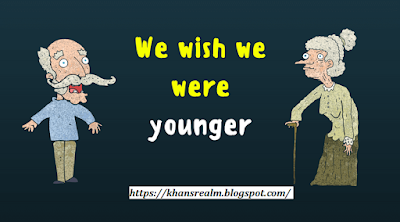Get Fluent in English_L04
Today’s article is all about uses of Wish or If only. We will learn when where & how to use Wish. It’s a very common word & we use this word daily very frequently when we talk to someone or ourselves. But sometimes we make some serious mistakes when we use Wish in our conversation. So I’ll try my best to give you clear concept of the word Wish.Before starting I just wanna ask you, what do you think about your English skill? Are you trying to evolve yourself?
OK, let’s start & go into deep.
01. Wish or if only + would…
- I wish my friend Edward would stop smoking.
- I wish he wouldn’t throw his dirty clothes indiscriminately everywhere in the room.
- I wish you would stop making so much noise!
- I wish you wouldn’t come through the kitchen with your dirty boots on.
We use wish or if only + would when we want something or someone to change or when we want someone to do something. Please have a look once again on the given examples. For first example, I know my friend smokes but I want him to stop. Alike, for the 2nd one, I know he always throws his dirty clothes indiscriminately everywhere in the room but I want him to be more tidy.
02. I wish I & I wish we + could…
- I wish I could stay with you.
- I wish we could persuade him to leave this place.
- I wish I could just say to him “Edward, we would like you to leave”
I wish & if only mean the same. But if only can express the wish more strongly.
- If only he would go & find a flat for him to live alone.
- If only I could stop smoking.
03. Wish or if only + the past simple/the past continuous…
We use wish (If only) + the past simple or past continuous when we talk about a regret about present situation.- I wish I didn’t smoke (I smoke but I regret it)
- I wish my flat was (were) nearer the office.
- I wish I was (were) earning a lot more money to build up a Mosque.
- I wish I was (were) there to help you out from peril.
- I wish we had a bigger car.
- I wish I knew how to use this DVD player.
04. Wish or if only + the past perfect…
We use wish + the perfect when we talk about a regret we have about something that happened or didn’t happen in the past.- I wish we hadn’t asked him to leave this place.
- I wish I hadn’t invited him.
- I wish I hadn’t overindulged so much last night.
- I wish he hadn’t eaten so much.
- If only he hadn’t smoked in the flat.
- I wish we had tried to talk to each other more.
05. Wishes….
We use wishes for an expression of kind feelings for someone, especially on a particular occasion.- When you see ex-girlfriend, please give her my best wishes.
- Suddenly I met her at new market & she said “my best wishes will be always with you for your upcoming movie”.
06. Wish + to-infinitive
When we use wish followed by a verb in the to-infinitive form, wish means the same as want, but it is more formal. We do not normally use wish in the continuous form when we use it with a to-infinitive.- I wish to speak to Mr. Hennessy, please. (Not: I’m wishing to speak to)
- I wish to visit you in the summer, if possible. (Not: I wish (that) I visit you in the summer …)
- I did not wish my family to know about Sara, so I told them nothing.
- We wish to have a table near the window, please. (or We would like a table near the window, please.)
07. Wish + indirect object + direct object
We use wish with two objects, an indirect object + a direct object (underlined), for expressions of good wishes and hopes that good things will happen to people:- I wish you success in your new job.
- I’ve got my driving test tomorrow. Wish me luck!
- We wish you a long and happy life together.














